Transparency: One of FINQ’s core values
FINQ stands out in the financial world with its uncompromising commitment to transparency, a principle deeply embedded in its AI-driven portfolios. Eldad Tamir, FINQ's CEO, emphasizes this: "Our biggest asset is that we are totally transparent... everything we do is on the web, and you can see what we do every day." This approach is revolutionary in a sector where traditionally, as Tamir notes, "Nothing is truly transparent."
FINQ's AI technology transforms financial transparency by pulling from and analyzing a diverse mountain of data points—from crowd-sourced insights to in-depth financial analyses—creating an engaging, real-time investment resource. This vast and varied data is then transformed into an accessible format, allowing investors to see not just the 'winning' stocks but the entire spectrum of investment performances. At the same time, FINQ's clear and comprehensive portfolios provide clients with unparalleled insight, making investment decisions more informed, empowering, and based on an unbiased, unfiltered view of the market.
Examples
Look no further than the past year, where FINQ’s algorithm excelled in creating alpha with objective, data-driven strategies, particularly with stocks like Comerica Inc. (CMA) and Meta Platforms Inc. (META). The AI's analysis of various parameters for CMA led to effective trading decisions, yielding a 51.42% profit, significantly outperforming the market's 9.35%.
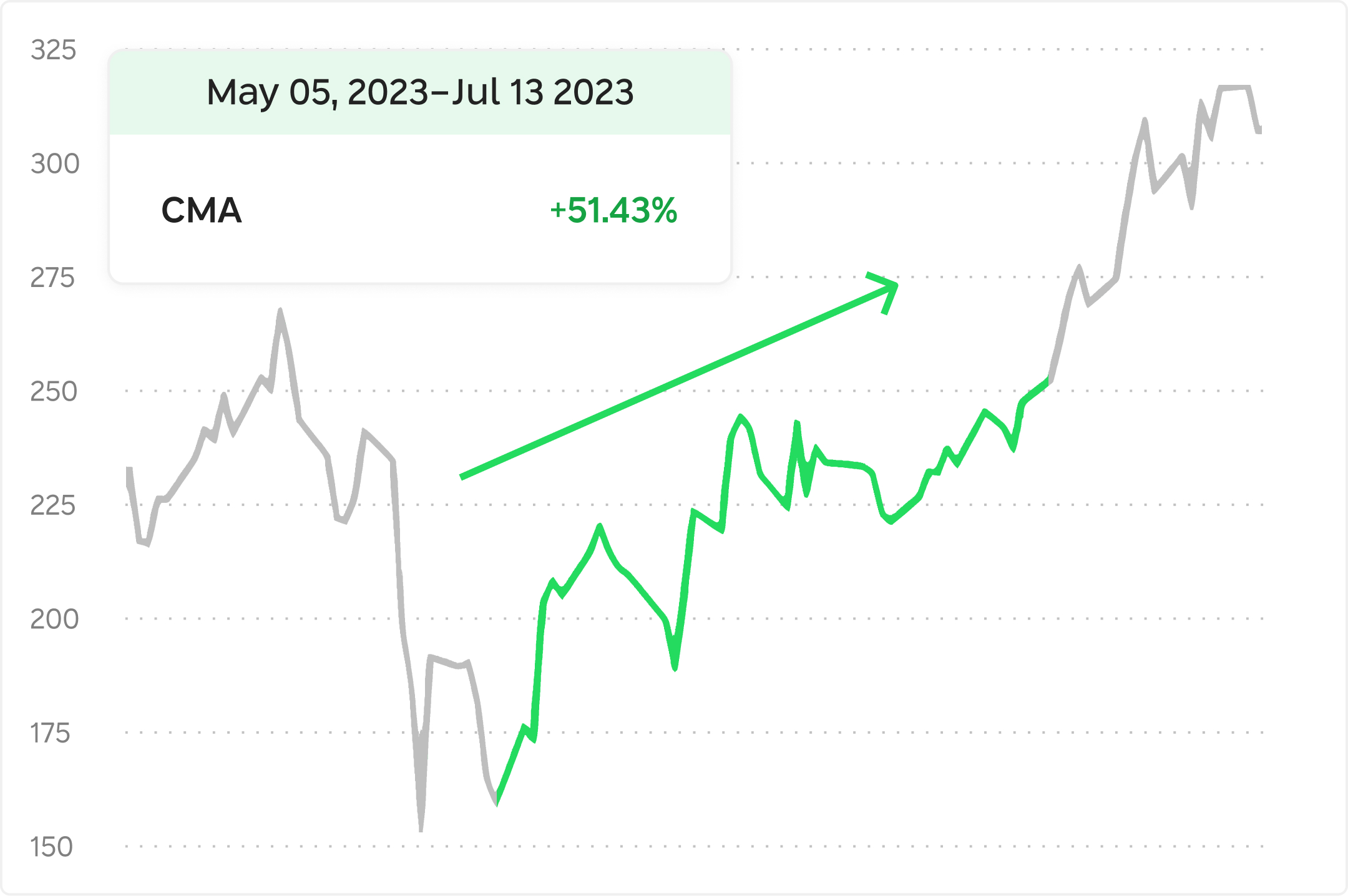
Similarly, the algorithm's keen detection of favorable changes for META resulted in a profitable buy-and-sell strategy, achieving a 62.62% profit against the market's 7.80%.
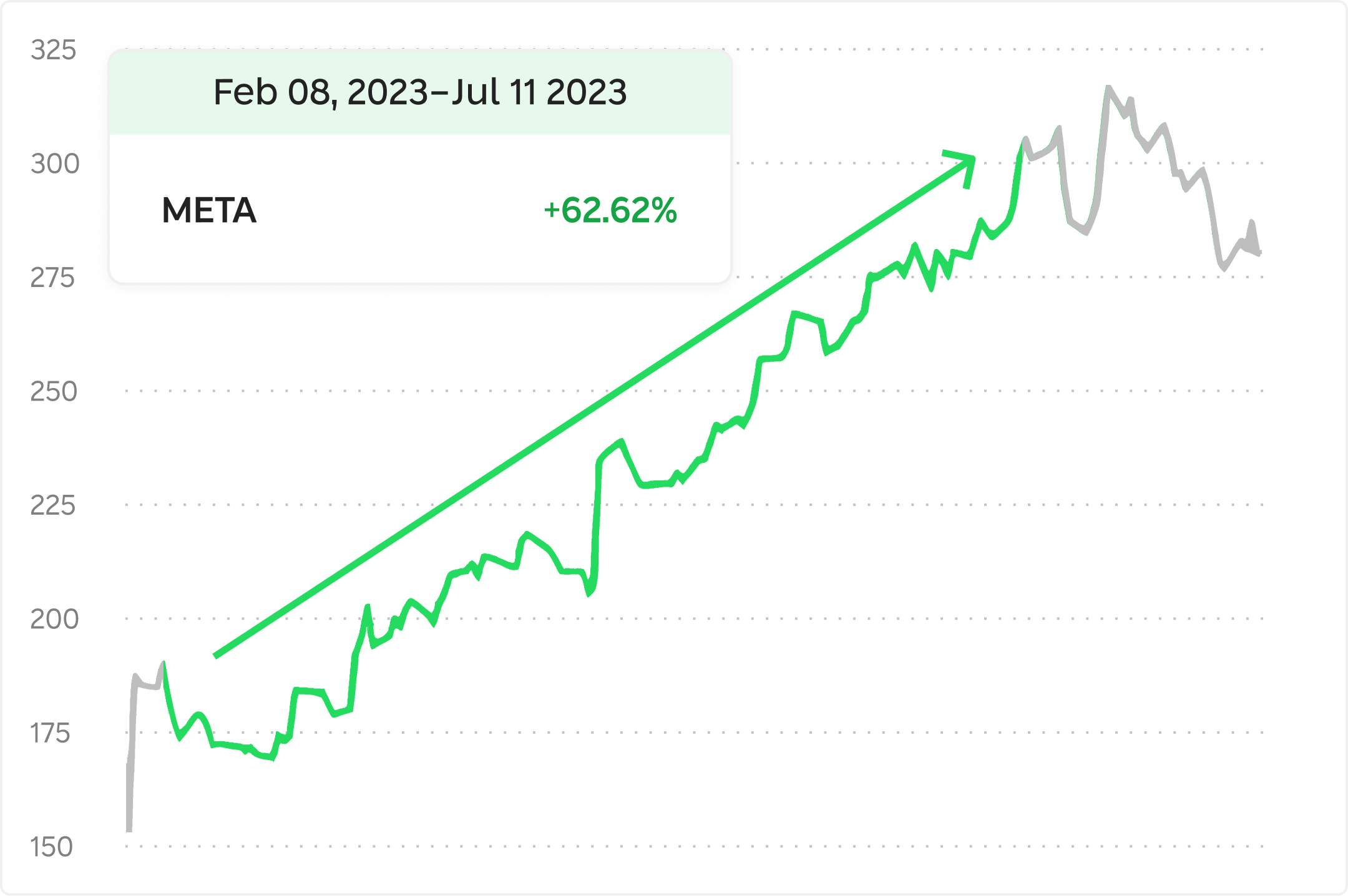
Moreover, FINQ's innovative technology and steadfast commitment to transparency have enabled its portfolios to significantly outperform the S&P 500 in 2024 and showcase the effectiveness of its scientific approach and financial transparency. Historical data on the stock page further highlights this achievement, detailing the evolution of FINQ's rank and providing explanations for changes over time, illustrating adaptive strategies in a dynamic market. As of January 12, 2024, the results speak for themselves:
- FINQFIRST: FINQFIRST stands out for its commitment to transparency, clearly demonstrated through its History tab and detailed stock pages. These features offer users a deep dive into the rationale behind FINQ's stock rankings and FINQFIRST’s daily updated top 10 list of stocks to buy. This precision is evident in the platform's impressive performance, showcasing returns of 47.12%, a stark contrast to the S&P 500's 13.96%.
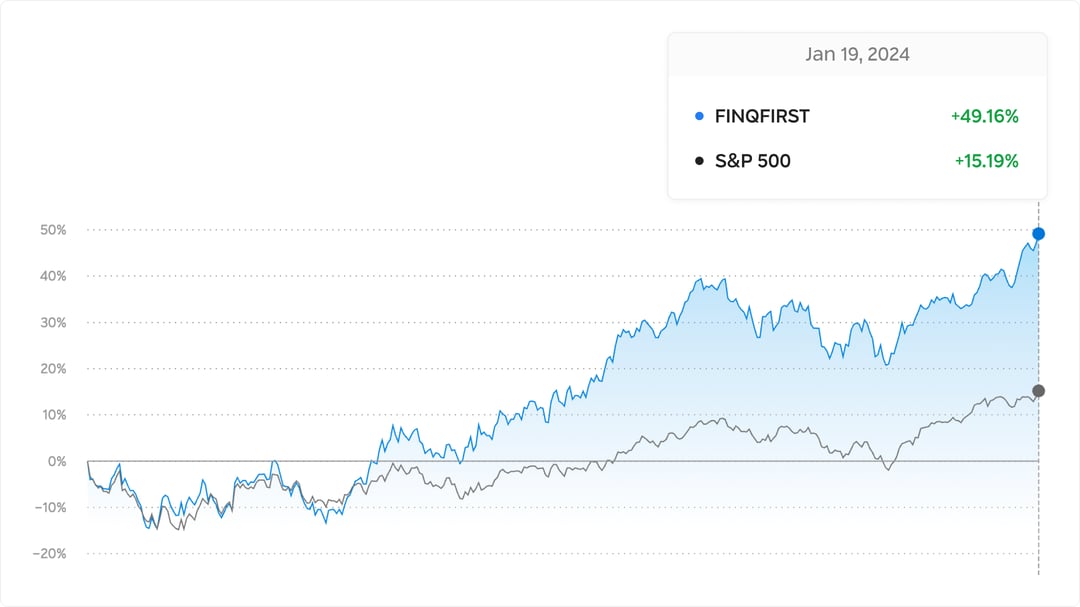
- FINQLAST: FINQLAST's approach to transparency is similar to its History tab and the explanations of how it consistently ranks the bottom 10 S&P 500 stocks for short-selling opportunities. This clear and open method of selection provides a unique edge for investors. The effectiveness of this strategy is demonstrated by its 17.33% returns, surpassing the S&P 500 Short's benchmark of -13.96%.
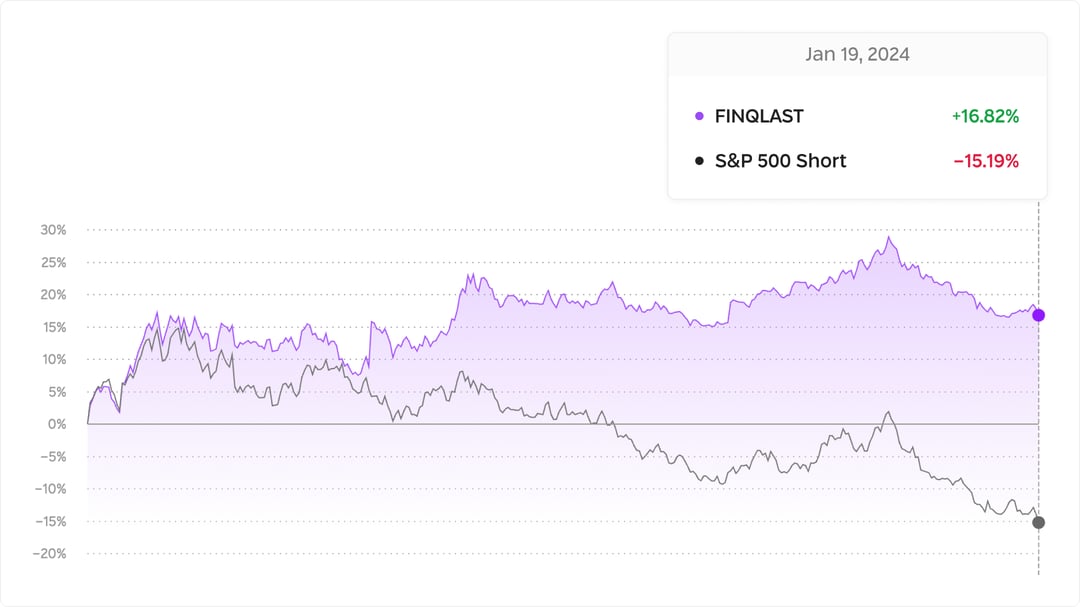
- FINQEDGE: FINQEDGE also exemplifies transparency through its user-friendly History tab and the detailed stock pages, which shed light on the FINQ ranking process. This flagship portfolio combines a daily updated list of the top stocks to buy with the bottom 10 stocks identified for short selling. This comprehensive and transparent approach is key to FINQEDGE's success, as evidenced by its impressive 40.31% returns, markedly outperforming the S&P 500's 13.96%.
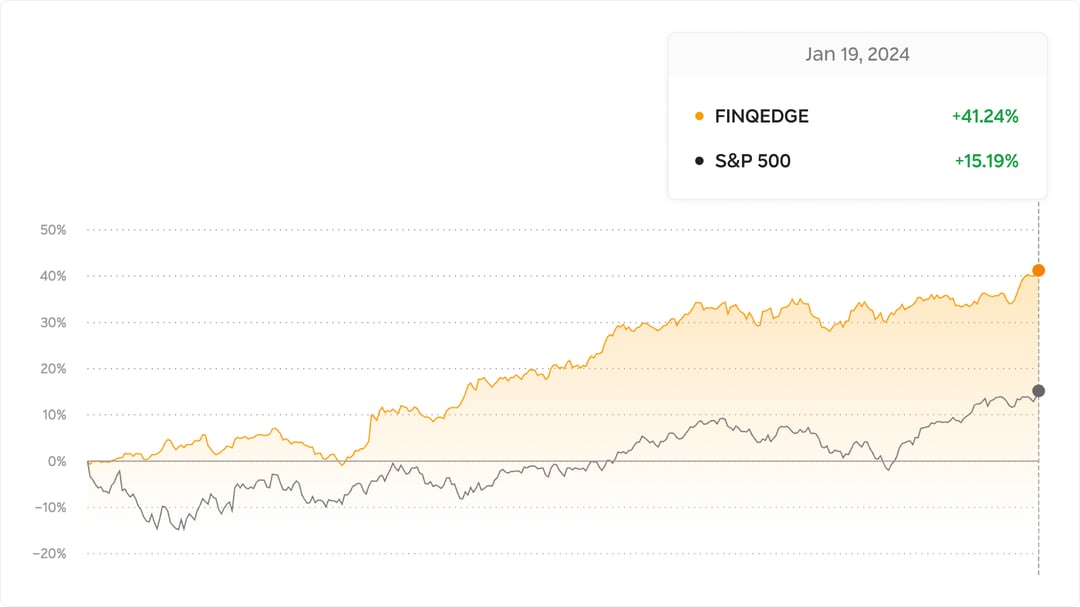
Final takeaways
Transparency is the cornerstone of modern financial management, a concept vividly brought to life by FINQ's approach. With its AI-driven technology, FINQ exemplifies how clear, accessible information can redefine investment strategies. Look no further than how its portfolios have consistently outperformed the S&P 500 in 2023 and continue to in 2024.
The power of open, data-driven insights in guiding investment decisions is real. Understanding the full scope of your investments, from high performers to those not faring as well, is non-negotiable today. That’s why FINQ's commitment to transparency is such a breath of fresh air that not only empowers investors but also sets a new standard in financial ethics and efficiency.
For those interested in experiencing how transparency can enhance investment strategies, consider exploring FINQ's platform. Join the movement towards transparent, informed investing.




